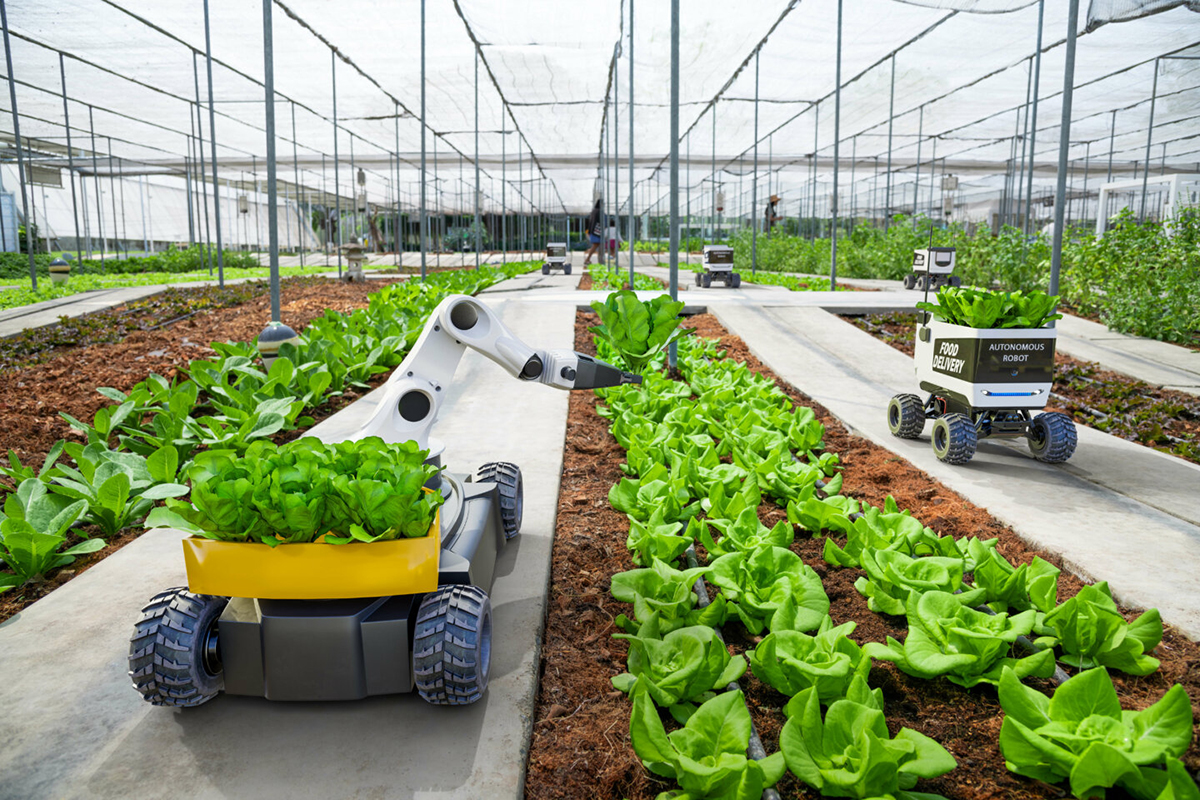Modern connectivity is revolutionising livestock management in agriculture, offering innovative solutions that enhance productivity, animal welfare, and sustainability. By integrating advanced technologies such as IoT, GPS, and data analytics, farmers can monitor and manage their livestock with unprecedented precision and efficiency. This article explores the myriad benefits of modern connectivity for livestock management.
Enhanced Animal Health Monitoring
One of the most significant benefits of modern connectivity in livestock management is the ability to monitor animal health in real-time. Wearable devices, such as smart collars and ear tags, track vital signs, activity levels, and behaviour. This continuous monitoring allows farmers to detect early signs of illness or distress, enabling timely intervention and reducing the risk of severe health issues. Early detection also helps in managing diseases more effectively, improving overall herd health.
Improved Reproductive Management
Connectivity tools play a crucial role in reproductive management. Sensors and monitoring systems can track heat cycles and other reproductive indicators, providing accurate data on the optimal breeding times. This precision reduces the need for manual observation and increases the success rate of breeding programmes. Additionally, monitoring pregnant animals ensures timely assistance during calving, improving the survival rate of both calves and mothers.
Optimised Nutrition and Feeding
Modern connectivity allows for precise nutrition and feeding management. Automated feeding systems can dispense the right amount of feed based on individual animal needs, reducing waste and ensuring that each animal receives adequate nutrition. IoT devices can monitor feed consumption and provide data on dietary preferences, helping farmers adjust feed formulations for optimal growth and production. This targeted approach enhances feed efficiency and reduces costs.
Efficient Herd Management
Connectivity solutions facilitate efficient herd management by providing real-time data on the location and movement of livestock. GPS-enabled devices allow farmers to track the whereabouts of their animals, making it easier to manage grazing patterns and prevent overgrazing. This technology also helps in quickly locating lost or stray animals, reducing labour and time spent on herding activities. Efficient herd management ensures better utilisation of pasture resources and enhances animal welfare.
Environmental Monitoring and Sustainability
Modern connectivity contributes to environmental sustainability in livestock farming. Sensors can monitor environmental conditions such as temperature, humidity, and air quality in barns and grazing areas. This data helps farmers create optimal living conditions for their livestock, reducing stress and improving productivity. Additionally, monitoring manure management systems ensures that waste is handled efficiently, minimising environmental pollution and promoting sustainable farming practices.
Data-Driven Decision Making
The wealth of data generated by connected devices empowers farmers to make data-driven decisions. Analytical tools process information on animal health, reproductive status, nutrition, and environmental conditions, providing valuable insights. Farmers can use this data to optimise their management practices, improve efficiency, and enhance profitability. Data-driven decision-making also supports long-term planning and helps in identifying trends and patterns in livestock performance.
Enhanced Biosecurity
Connectivity tools enhance biosecurity measures on farms. Real-time monitoring systems can track the movement of animals and people within the farm, reducing the risk of disease transmission. In the event of an outbreak, connectivity solutions enable swift isolation and containment of affected animals, preventing the spread of infectious diseases. Improved biosecurity protects livestock health and safeguards the farm’s economic viability.
Better Compliance and Reporting
Modern connectivity aids in regulatory compliance and reporting. Accurate data on livestock health, feed consumption, and environmental conditions helps farmers meet industry standards and comply with regulations. This data can be used for record-keeping and reporting purposes, ensuring transparency and accountability. Compliance with regulations builds consumer trust and enhances market access for livestock products.
Increased Productivity and Profitability
The efficiencies gained through modern connectivity translate into increased productivity and profitability for livestock farmers. By optimising health management, reproduction, nutrition, and environmental conditions, farmers can enhance livestock performance and production. Reduced waste and improved feed efficiency lower operational costs, while better health and reproductive outcomes increase yields. These benefits contribute to the overall financial sustainability of livestock farming.
Future Prospects
The future of livestock management looks promising with the continued advancement of connectivity technologies. Emerging innovations such as artificial intelligence (AI) and machine learning will further enhance the capabilities of connectivity solutions, providing even more precise and predictive insights. As these technologies become more accessible and affordable, their adoption will continue to grow, driving further improvements in livestock management and sustainability.
Modern connectivity is transforming livestock management in agriculture, offering numerous benefits for farmers and their animals. By leveraging advanced technologies, farmers can monitor and manage their livestock more effectively, improving health, productivity, and sustainability. As the agricultural sector continues to evolve, the role of connectivity in livestock management will only become more integral, paving the way for a more efficient and sustainable future.
#SmartFarming #LivestockManagement #AgriTech #IoTInFarming #SustainableFarming #AnimalHealth #PrecisionAgriculture #FarmInnovation #DataDrivenFarming #FutureOfAgriculture
